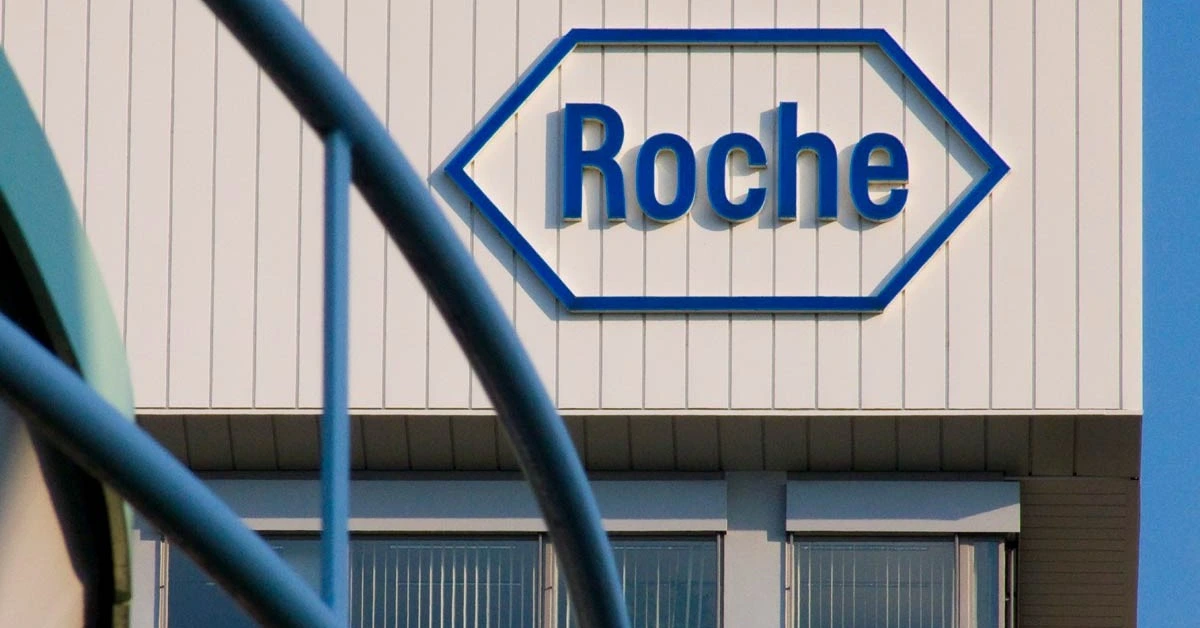
SWITZERLAND – Roche, one of the world’s largest pharmaceutical companies, experienced significant setbacks in recent rankings, dropping from second to sixth place in Pharma Exec’s Top 50 Global Pharma list.
Despite this, Roche remains a formidable player in the pharmaceutical industry, focusing on R&D innovation and a robust M&A strategy to maintain its competitive edge.
Roche’s pharmaceutical division is grappling with competition from biosimilars but has seen growth in drugs like Hemlibra, Ocrevus, Evrysdi, Phesgo, and Tecentriq, achieving a modest 3% growth during the first half of the year.
Undeterred, Roche continues to prioritize research and development, spending US $13.1 billion in 2021.
The company currently has 14 new molecular entities in late-stage trials, a clear indication of its long-term commitment to innovation.
The Basel-based company’s aggressive M&A strategy is also playing a key role in its efforts to bolster its pipeline.
Roche recently acquired Seattle-based Good Therapeutics for US $250 million, gaining access to a PD-1-regulated IL-2 program.
This preclinical program strengthens Roche’s position in immuno-oncology by stimulating T cells without triggering toxicity, supported by promising in vitro and in vivo data.
The acquisition complements Roche’s existing success with its PD-L1 checkpoint inhibitor, Tecentriq, a blockbuster drug in the immuno-oncology space.
In another oncology-focused partnership, Roche and its subsidiary Genentech collaborated with Jemincare to advance treatments for prostate cancer, with Roche investing US $60 million upfront.
Additionally, Genentech secured a licensing agreement with Kiniksa Pharmaceuticals for an antibody targeting the oncostatin M receptor beta for US $80 million upfront, further strengthening Roche’s oncology portfolio.
Roche has also expanded into cell therapies through strategic deals, an area where it was initially slow to enter.
The Swiss giant invested US $110 million in Poseida Therapeutics for its allogeneic CAR-T programs, which are designed to provide off-the-shelf solutions to democratize CAR-T therapies.
These programs target the same biomarkers as existing CAR-T treatments like Johnson & Johnson’s Carvykti and Gilead’s Yescarta, offering Roche a competitive foothold in the emerging cell therapy market.
The Poseida partnership, which began in 2022, has evolved over time, reflecting Roche’s growing interest in the cell therapy space.
Although the company initially declined acquisition opportunities, a broader partnership and additional data have made Poseida’s assets highly valuable for Roche’s long-term strategy.
Beyond oncology and cell therapies, Roche has shown interest in treatments for inflammatory bowel diseases (IBD), including ulcerative colitis and Crohn’s disease.
Roche also acquired an experimental drug from U.S.-based Roivant Sciences in a deal valued at US $7.1 billion in December 2023.
XRP HEALTHCARE L.L.C | License Number: 2312867.01 | Dubai | © Copyright 2025 | All Rights Reserved